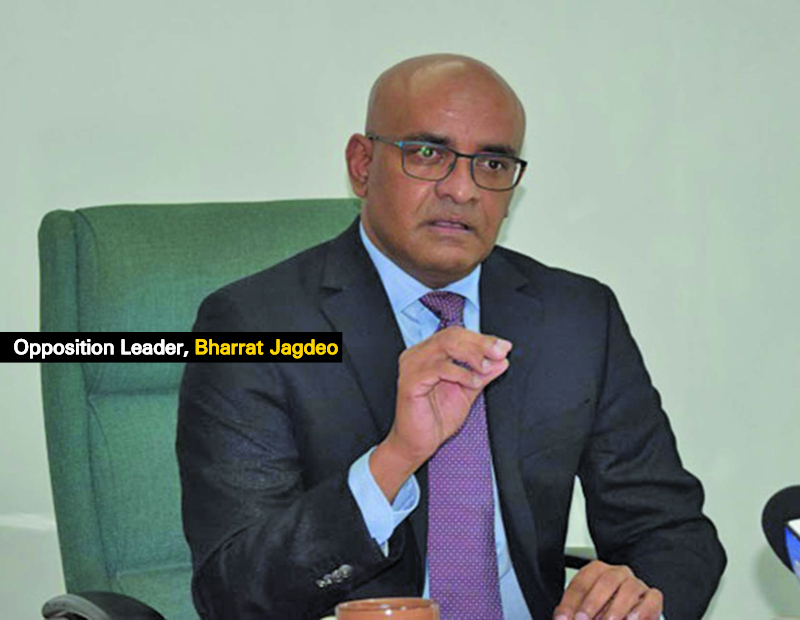Leader of the Parliamentary Opposition Bharrat Jagdeo says that the Peoples’ Progressive Party/Civic (PPP/C) will be rolling out their manifesto shortly and he offered a sneak-peek into some of the party’s plans if it emerges victorious at the next general and regional elections.
He said that the manifesto has three versions: the first whereby posters are being used to disseminate information on social media and elsewhere; the second, which will be distributed electronically; and the third, which will involve a detailed technical breakdown of the party’s plans and methodologies for achieving same.
The former president said that the first issue that will be dealt with is that of tax. He claimed that within the last four years, over 200 changes were made in the area of taxation, either by the introduction of new ones or changes to existing measures.
He noted that the party will first deal with the reversal of taxes in the agricultural and mining sectors where, he said, there is a need to reverse the increase in land rentals and taxation on equipment used in mining. Tax reversals will also be made in the area of Information Communication Technologies (ICT).
Further, he noted that the Valued Added Tax (VAT) will be removed on potable water as well as the reversal of age limit placed on vehicles being imported to Guyana.
The restriction on the importation of Motor Cars, Vans, Buses, Sports Utility Vehicles (SUVs) and Pickups eight years and older (from the date of manufacture to the date of importation), took effect on May 1, 2016. This measure was announced by the Minister of Finance during the presentation of the 2016 National Budget; it was subsequently presented in Parliament in February and assented to on March 14, 2016.
The politician at his Church Street, Georgetown office today said that after the reversal of tax measures are done, the nation can rest assure that “no additional tax measures will be put in place”.
With regards to the expenditure of oil and gas revenue, Jagdeo said that the party will include in its “detailed technical” version of its manifesto how each Guyanese will benefit.
He hinted at education, development of small businesses, and infrastructural developments.













